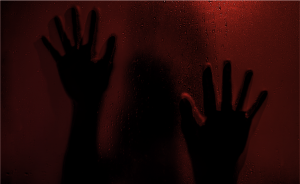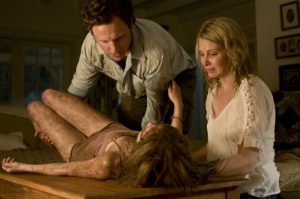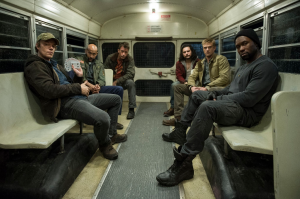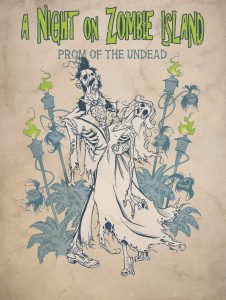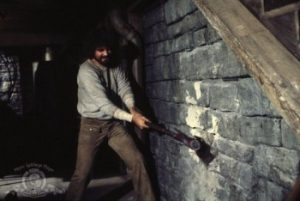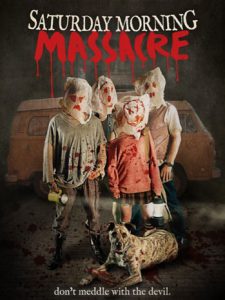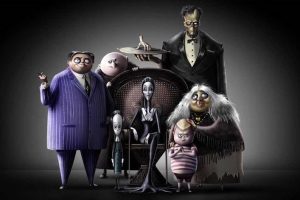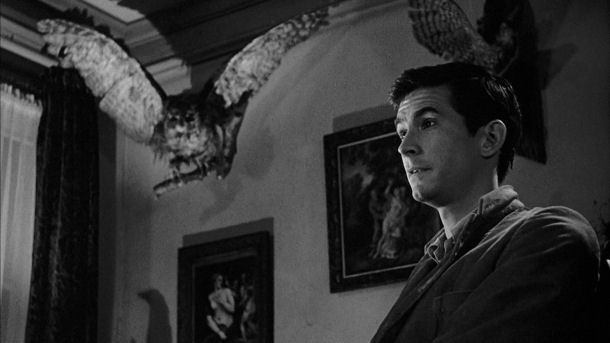
Top Ten Sympathetic Horror Killers
Not all horror movie murderers are created equal. From the reticent Jason Voorhees who toils away at the thankless job of slaughtering campers to the gleeful Freddy Krueger who revels in every tally mark he gains when murdering a Springwood teen, plenty of killers seem perfectly suited to their vocations. But in the annals of horror, there are a few homicidal figures that are more victims of circumstances than straight-up bloodthirsty villains. Granted, any of them could have made different (read: less macabre) choices, but part of the allure for the audience is watching the downward spiral into madness and mayhem.
So here are ten horror killers who are more sympathetic than some films’ heroes. Being bad never seemed so woeful.
10. Norman Bates in Psycho
In the mid-twentieth century, Alfred Hitchcock went through a majorly Freudian stage. Spellbound demonstrated his Oedipal fetish at its worst, and neither Salvador Dali nor Gregory Peck could keep that surreal sinking ship afloat. Psycho, however, represented Hitch’s psychosexual fixations at its best. Of course, as anyone who’s taken Psych 101 knows, a primary tenet of Freud’s theory is all that maternal influence stuff, and boy, does Norman Bates exemplify the love of a son. Okay, maybe not so much love as plumb obsession, but the audience does get the idea that dear old Mom tried way too hard to make Norman a surrogate spouse. That is, until she found herself a real husband. At that point, unfortunately, Norman was too old to play catch with a stepdad.
Another piece of psychology the film champions is dissociative identity disorder, which would render Norman unaware of his wrongdoings. The only problem is that you’re far more likely to find dual personality at the cinema than on the proverbial therapy couch. But there I go again, ruining all the celluloid fun.

9. Countess Elizabeth Bathory in Daughters of Darkness
When it comes to the Countess, charismatic might be a better descriptor than sympathetic. Yet the loneliness that permeates her otherwise stylish aura does give the film a decidedly more downtrodden countenance. You get the impression Elizabeth had no choice about inheriting her family’s bloodlust, so she’s really just making the best out of a bad situation. And with no onscreen killings that are explicitly her fault, this is one killer the audience can’t help but root for. But maybe that’s just her vampiric thrall convincing us to forgive her. She’s a spellbinding troublemaker like that.

8. Eli/Abby in Let the Right One In/Let Me In
Rarely can an original and a remake sit side by side on any list, but these two versions quite fairly merge into a single entry of sympathetic killers. Eli/Abby takes the vampire legend to the tween set and makes you genuinely wonder how the first of these two films could have been released in the same year (and interstellar dimension) as Twilight. The juvenile bloodsucker is definitely not the nicest kid on the block but like Carrie before her, she’s got a knack for taking out the bullies. And who doesn’t like a monster that fights on behalf of the little guy?

7. The Baby in It’s Alive
Imagine for a moment you’re a baby born into this world with sharp fangs and a penchant for human flesh. You don’t know that it’s wrong to attack the doctors and nurses that deliver you. You can’t see the problem with going for the throats of random passersby. All you know is that you’re hungry.
Alright, that might oversimplify the plight of the newborn in 1974’s It’s Alive. But the fact remains that the little fellow just asks for what every kid wants: nourishment, acceptance, and the blood of whomever crosses you. Plus, you can’t entirely blame him. His dad does look like a poor man’s Bob Newhart. That would drive anyone to kill.

6. Carol Ledoux in Repulsion
Now I will confess I was thirteen when I last saw Repulsion, and at the time, I couldn’t make heads or rabbit tails out of its puzzling narrative. But for repressed Carol, played by the usually sexed-up Catherine Deneuve, the surreal frolics aren’t remotely her blunder. Men just keep making unwanted advances. And while the average girl is accustomed to throwing the nearest drink in a man’s lecherous mug and vacating the premises, Carol acts out a punishment most women wish on the world’s plethora of perverts: a slice-and-dice end. Eventually, she descends into full-on catatonic madness, but in the interim, she racks up a respectably body count. In doing so, she does all decent women the service of removing undesirables from the dating pool. That’s a gambit worthy of support.

5. Carla Hoffman in The Gorgon
A Medusa with a heart of gold, Carla Hoffman ranks among Hammer’s coolest villains and strongest female characters. Unfortunately for her, she doesn’t even know she’s doing it. Unlike Norman Bates who’s transformation is all in the mind (and the wardrobe), Carla does a full body metamorphosis, one that turns to stone every man who dares to watch. Thankfully, Christopher Lee is there to put the kibosh on her hijinks, but even in the film’s denouement, you find yourself feeling this Gorgon got the rawest deal of any movie killer.

4. Frankenstein’s Monster in Frankenstein and The Bride of Frankenstein
In horror, mothers and fathers seem predominantly responsible for engineering killers, but in the case of Frankenstein’s Monster, a daddy complex takes on a whole new meaning. Boris Karloff’s tragic figure never asked to be reanimated, and once he proves true the scientific theories of his “father”, you’d think he’d get some thanks. Instead, he’s treated like a cobbled-together pariah. Things only get worse from there. Although the creation is responsible for a number of deaths, most notably a botanically-inclined little girl, he’s just trying to get by in a world that doesn’t understand him. And under James Whale’s ever-deft direction, this is a monster more human than any of his animate counterparts.

3. Carrie White in Carrie
After last week’s article revering Carrie, I admit that I do still have Stephen King’s ultimate misfit on the brain. Worse yet, she’s appearing one more time on my upcoming Best Horror Films of the 1970s list. Then, for the sake of diversity, I’ll place her–and a bucket of pig’s blood–on cold storage for awhile. But in the meantime, there are few mass murderers as pitiful as little Sissy Spacek and her gore-drenched satin formal.
Today, in an era of school shootings, she seems a bit more sinister, but the antagonistic teens do slaughter her date before she goes on a killing spree, so that wins her back a few sympathy votes. Even without the prom debacle, though, Carrie really never stood a chance. From her epic social ineptitude to an overbearingly insane mother, this outcast has weird as her birthright. And let’s face it: that just makes her all the more relatable.

2. Jennifer Hills in I Spit on Your Grave
Calling Jennifer Hills a killer whitewashes the premise of a movie so gritty and unrelenting that just a single viewing sears every frame into your mind forever. Still, catchy tagline or not, a court could easily convict her of cold-blooded, premeditated murder. Sure, the four guys deserved it even more than hill folk who like squealing pigs, but that doesn’t make her any less homicidal, albeit justifiably. All that said, the film’s bottom line relies on the audience’s vicarious thrill as our heroine vanquishes one foe after another, a kind of post-modern ‘hear me roar’ dragon slayer. People say vigilantism destroys society’s order. But Jennifer Hills would argue it restores it.

1. Mark Lewis in Peeping Tom
When I craft film lists (and I prefer to think of it as ‘crafting’ like a blacksmith making a horseshoe or something else truly hyperbolic), I sometimes create the concept and then find films to fill the niche. However, my favorite method is when one film inspires me so much, I feel obliged to design an entire article with that title as its centerpiece.
So goes Peeping Tom inspiring today’s Top Ten. In the 1960 counterpart to Psycho, Carl Boehm plays the equal parts creepy and dapper Mark Lewis who is possibly the most sympathetic killer in all of horror. Mark is someone society categorically denies a place, and rather than accept or ridicule him, it just forgets his existence altogether. That liminal abandonment is what fosters the voyeuristic urge that ultimately inspires him to kill. Yet until the final scenes, one can’t resist thinking that if a hundred forms of help could have intercepted his life earlier, maybe he wouldn’t have felt murder was his only choice. And then you start to wonder if there are people out there right now–in your apartment complex or office building or in front of you at Starbucks–feeling the exact same way. After all, horror rarely invents monsters; it just reveals what’s already hiding in plain sight.

Who’s your favorite sympathetic killer? Let me know in the comments below!



